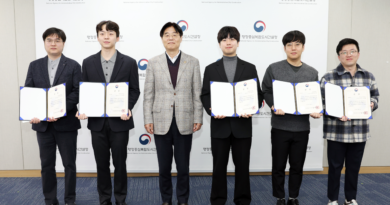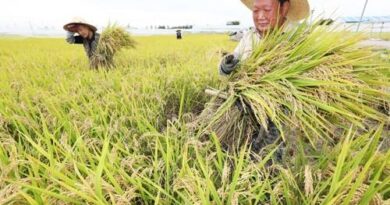We will actively help them advance into overseas markets by supporting stable production technology for export agricultural products.

On April 17, Rural Development Administration Technical Cooperation Director Kim Hwang-yong visited the production site of a new paprika variety for export in Hwasun-gun, Jeollanam-do, discussed the direction of technical support, and encouraged the officials.
On this day, Director Kim Hwang-yong emphasized the need to diversify the paprika export market, which is concentrated in Japan, and establish a strategy to increase export competitiveness by replacing foreign paprika seeds with new domestic varieties.
Farmers producing paprika for export and officials from related organizations who attended the event said that costs can be reduced by using domestically produced seeds, but exports can only be expanded if new paprika varieties are verified, stable production cultivation guidelines (manuals) are established, and sales channels are secured.
In addition, as paprika growth has become unstable due to worsening weather conditions (mining, etc.), harvests have decreased, and the number of paprika producers is decreasing, and they agreed that the Rural Development Administration should be proactive in providing technical support for growing paprika for export in the future.
Regarding this, Director Kim said, “The Rural Development Administration is collaborating with local rural development organizations to study the regional adaptability of new winter and summer growing paprika varieties.” He added, “Based on the results, we will develop cultivation guidelines and promote field education to develop new paprika varieties.” “We will provide support so that it can settle into the field,” he said.
In addition, Director Kim said, “We will identify the difficulties of farmers trying to export agricultural products even under difficult conditions and provide multifaceted support to resolve problems that arise in the field at an early stage.” He added, “We will continue to develop new markets for paprika export and ensure stable cultivation of new varieties.” “I will pay attention and listen to the voices from the field,” he said.
Editor James








